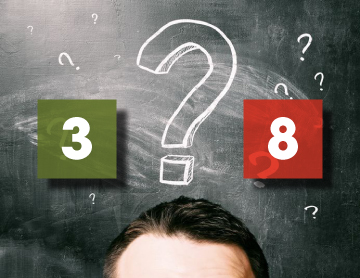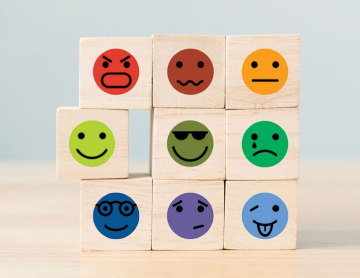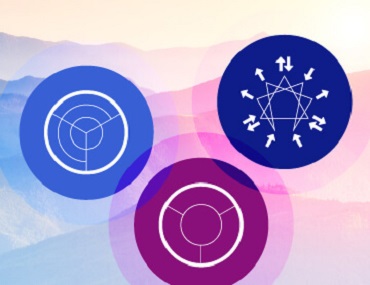Introduction
The Enneagram continues to gain momentum and popularity around the world as a framework that unlocks the keys to a better version of yourself. As a result, more and more people are looking to accurately identify which of the nine Enneagram Types and 27 Enneagram Subtypes they are.
For many, finding their point of resonance on the Enneagram is a long-term journey that involves learning about the framework and working with a coach or tool to discover their own Type. Some turn to Typing experts who use the traditional narrative typing techniques to guide them to their Type, whilst others use the power of technology and online tests to determine their Type.
Both methods have value and limitations. Below we outline some differences between these schools of Enneagram typing.
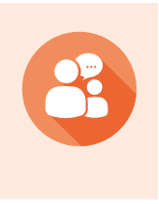
Narrative Typing
Narrative Typing is a term used to describe the classic or traditional way to identify Enneagram Type. This process involves Enneagram experts guiding individuals to openly explore and discover their own Types using methods such as panel interviewing, interaction, and guided reflection.
Although this approach remains a popular choice, using a purely narrative approach can be problematic. Because the Enneagram is a complex and layered framework that goes deep into what drives us on a psychodynamic level, there is a range of factors that can influence an individual’s ability to recognise themselves accurately.
Some reasons why pure narrative typing approaches may not be accurate include:
- The Narrative Typing process may be very dependent on the quality of guidance offered by the expert. A coach or expert’s personal bias may influence the process and the results, which could lead to an inaccurate outcome.
- Individuals’ level of self-awareness may influence how accurately they can reflect and distinguish between their behaviours and deeper motivations. Their stereotypes and biases may also play a role in how they reflect, and as a result, narrative Typing can take a long time or be unreliable.
- Overlays and thoughts about how they ‘should’ behave or answer questions can lead individuals to demonstrate a cultivated image rather than the real truth about themselves, which may make it harder to assess their underlying motivations.
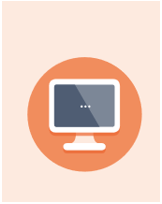
Computerised Typing
Computerised Typing provides a modern solution to support clients in identifying their Enneagram Type. Although computerised tests have been around for more than a decade and have been used with great success by coaches and individuals, there are still some reservations around whether computerised tests are capable of processing and translating the more abstract elements of the Enneagram.
This scepticism is perpetuated by the fact that many free computerised tests still focus on observable behaviours rather than the deeper underlying motivations that drive the Enneagram; ultimately failing to resolve the more complex nuances that the narrative approach addresses. Many quick tests on the internet miss the subtle distinctions and mistype ‘lookalikes’, some with validity as low as 0.6%.
Rapid advances in technology have allowed for more accurate testing in sophisticated online instruments, and can deliver extremely high validity and reliability in Typing.
The Integrative Enneagram Questionnaire (iEQ9) is an intelligent, adaptive, reliable and accurate online questionnaire that targets the complex and unconscious elements of Enneagram Typing. Refined over an extensive period with data from more than 400 000 clients, the test offers reliable Typing results.
When it comes to computerised Typing, however, no questionnaire can always be 100% accurate in Typing. Some reasons why questionnaires are not always accurate in Typing may include:
- When people complete a test, their speed and level of reflection can influence the accuracy of their results. Keep in mind, however, that quick, intuitive responses can produce accurate results. Slow or interrupted completion of the questionnaire often leads to over-rationalisation and defences impacting on their answers, with lower reliability.
- Individuals may be extremely stressed, influenced or triggered by their current circumstances or environment. So much so that when answering questions, they are unable to take a broader view of their life and context and consider their life as a whole or in totality as is required in our questionnaire. Typing may be less accurate if done under extreme stress.
- Questionnaire accuracy is also impacted by response bias, also referred to as survey bias, which is the tendency of an individual to answer questions in a survey untruthfully or misleadingly. For example, individuals may wish to present a good image of themselves and thereby respond to the questionnaire in a socially desirable manner. The reverse could hold true for individuals who, for some reason, may wish to show a bad image.
Our practitioners say that the iEQ9 provides them with an accelerated, highly accurate and comprehensive picture of their client’s drivers and dynamics which would have otherwise taken at least three to four coaching sessions to build through exploration. It provides a reliable starting point, free of subjective bias, for coaches who might be less confident using the narrative approach to Typing.
The accuracy of the iEQ9 tools and resources achieved immediate and sustainable awareness with my clients. Each time, it served as a shortcut to radical ‘Ahas!’ in their personal perspectives, why they struggle in a team and how to effectively resolve their pain points. ~ Dr R. Karl Hebenstreit, author of ‘Taking Care of Business with the Enneagram’
Narrative and Computerised Typing – An Integrative Approach
While this debate seems to imply that a choice needs to be made between narrative or computerised Typing, at Integrative Enneagram Solutions we believe that the best results come from a combination of the iEQ9 technology with a deep, open-minded coaching relationship. With a combined approach, highly accurate Typing and unparalleled depth of insight can be provided.
The iEQ9 does not seek to replace the Enneagram’s rich narrative tradition but rather to enhance it. The best coaches blend the accuracy and speed of a computerised test with their own knowledge and narrative skills, to guide clients to discover their home base on the Enneagram.
iEQ9 practitioners are encouraged to bring their expertise, intuition and curiosity to the fore in their debrief sessions. By using narrative skills and listening deeply to their client’s experiences and messages, coaches help individuals explore their Enneagram result and confirm or validate it with them. Coaches can also use this approach to help their clients understand their Type and establish the parts of their reports that resonate most with them.
Our Integrative Enneagram Solutions trainings build these narrative debriefing skills and we offer continuing guidance and support to our clients in this work. We believe this approach allows practitioners to achieve breakthroughs in coaching journeys and facilitate deep and lasting personal transformation with their clients.
“In my opinion, Integrative Enneagram Solutions offers the best Enneagram personality type assessment currently available.I appreciate that their business model is based on delivering a reliable test to coaches, working to help people develop themselves in the workplace, in that it assures that Enneagram-related information is integrated thoughtfully into a larger program of self-work. I am also grateful for their dedication to customer service and the support they offer their clients - their flexibility in customising reports and meeting the specific needs of coaches makes them a valuable partner in furthering conscious growth in organisations.” – Beatrice Chestnut, author of ‘The Complete Enneagram’, San Francisco.

 What is the Enneagram?
What is the Enneagram?
 Introduction to the 27 Subtypes
Introduction to the 27 Subtypes
 Introduction to the 3 Centers
Introduction to the 3 Centers
 Wings
Wings
 Lines and Integration
Lines and Integration
 Enneagram History & Origin
Enneagram History & Origin
 Enneagram for Myself
Enneagram for Myself
 Enneagram for Practitioners
Enneagram for Practitioners
 Enneagram for Business
Enneagram for Business
 iEQ9 Individual Reports
iEQ9 Individual Reports
 iEQ9 Team Reports
iEQ9 Team Reports
 iEQ9 Questionnaire
iEQ9 Questionnaire
 Training Events
Training Events
 Level 1 iEQ9 Accreditation
Level 1 iEQ9 Accreditation
 Level 2 Enneagram Team Dynamics
Level 2 Enneagram Team Dynamics
 International Enneagram Conference
International Enneagram Conference
 iEQ9 Community of Practice Events
iEQ9 Community of Practice Events
 About Integrative9
About Integrative9
 Meet the Faculty
Meet the Faculty
 Testimonials
Testimonials
 Contact Us
Contact Us

